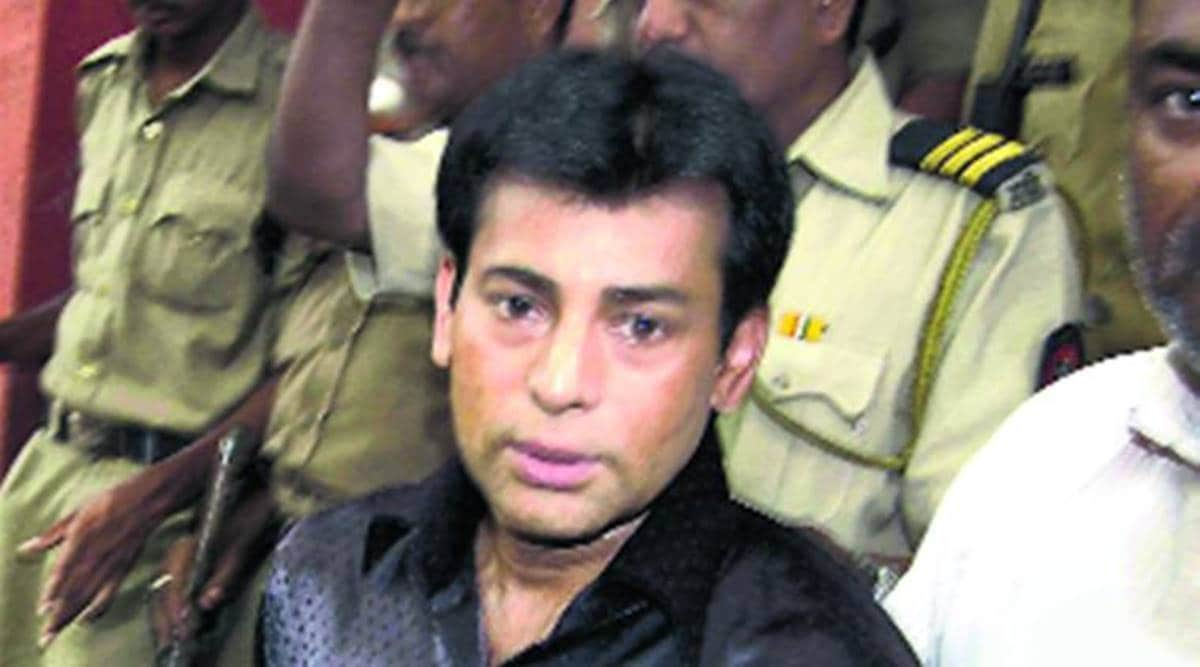Stay updated with the latest - Click here to follow us on Instagram
Abu Salem plea against life term: Will comply with word to Portugal when need arises, MHA tells SC
Abu Salem, a convict in the 1993 Mumbai serial blasts that killed 257 people, was extradited from Portugal on November 11, 2005. As per India's assurance, he would not be visited by death penalty or imprisonment for a term beyond 25 years.
 Salem, a convict in the 1993 Mumbai serial blasts case, was extradited from Portugal on November 11, 2005, after a prolonged legal battle (Representational Express/file photo)
Salem, a convict in the 1993 Mumbai serial blasts case, was extradited from Portugal on November 11, 2005, after a prolonged legal battle (Representational Express/file photo)The Union Ministry of Home Affairs (MHA) has told the Supreme Court that while it is bound by the assurance given to Portugal that gangster Abu Salem will not be put to death or face imprisonment for a period beyond 25 years, the question of honouring it will arise only in 2030 and that “compliance” of the same “will be done at an appropriate time” subject to remedies available then.
“It is respectfully submitted that the Government of India is bound by the assurance dated December 17, 2002. The period of 25 years, which is mentioned in the assurance, will be abided by the Union of India at an appropriate time subject to the remedies which may be available. The question of the Union of India honouring its assurance dated 17.12.2002 will arise only when the period of 25 years is to expire. This date is 10.11.2030…The Government of India will abide by the said assurance…subject to the rights that may be available at that stage,” Union Home Secretary Ajay Kumar Bhalla said in an affidavit filed in the apex court.
Hearing a plea by Salem who contended that the 2017 judgment of a Mumbai TADA (Terrorist and Disruptive Activities (Prevention) Act) court sentencing him to life imprisonment in the 1993 Mumbai serial blasts case violated the terms of his extradition to India, the court had earlier asked the government to make its stand clear on the issue.
The affidavit referred to the 2002 assurance which said that “if extradited by Portugal for trial in India, Abu Salem…would not be visited by death penalty or imprisonment for a term beyond 25 years”. Pointing out that this 25-year period will only end in November 2030, the government said that “before the said date”, Salem “cannot raise any arguments based on the said assurance” and “therefore” his “contention…about non-compliance of assurance is premature and based on hypothetical surmises and can never be raised in present proceedings”.
It also said that Salem’s “attempt to club that assurance with merits of the present case is legally untenable”. “Therefore, there is no question of the convict-appellant arguing anything at this stage based upon the said assurance while arguing the present appeal (against his conviction) on the merits of the case which can be argued only based upon the investigation papers, evidence collected…and the findings of the designated court,” the affidavit added.
“The compliance of the assurance dated 17.12.2002 will be done at an appropriate time and (the) Government of India will abide by the assurances in accordance with the law and subject to the remedies as may be available at that stage,” it stated.
Asking the home secretary to file an affidavit in the matter, the court had earlier acknowledged that the offence with which Salem was charged “is serious” but added that the government will, however, have to take a stand keeping in mind the far-reaching implications of its sovereign commitment on future extradition attempts.
“The offence is serious, but in your political wisdom; international wisdom you did something. You have to take care of it. It would have far-reaching ramifications the next time you want someone to come to the country,” the court had said.
The special court in Mumbai had also sentenced Salem’s co-convicts Mustafa Dossa, Karimullah Khan, Feroz Abdul Rashid Khan, Riyaz Siddiqui and Taher Merchant.
While Taher Merchant and Feroz Abdul Rashid Khan were sentenced to death, Karimullah Khan was given life imprisonment. Riyaz Siddiqui, who had been found not guilty of conspiracy, was sentenced to 10 years in jail. Another accused Abdul Qayyum Karim Sheik was acquitted as the prosecution failed to establish the charges against him. The case against Mustafa Dossa was closed after his death during the trial.







